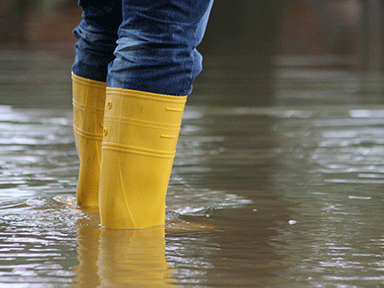Insurance is all about managing risk – and risk can sometimes change. When it does, insurers reserve the right to place restrictions on accepting new cover. This is known as placing an ‘embargo’.
Embargoes on insurance policies are normal practice and usually take effect when events like fires, flood or cyclones are likely to impact an area.
For example, at the time of writing this, EBM RentCover was required to place embargoes on many Queensland suburbs that were experiencing wild weather because of Cyclone Alfred. This was because the risk was either already occurring or imminent, and insurers do not typically offer cover for known or likely events.
Embargoes ultimately prevent people buying insurance when risks are high because these people are more likely to make a claim.
While some insurers may still sell a policy in these circumstances, they may stipulate a period within which they will not accept a claim against the policy (e.g. 72 hours).
This is what you need to know about embargoes…
What exactly is an embargo?
It is basically a restriction an insurer applies when they will not accept new policies in certain areas or circumstances.
Why do insurers place embargoes?
An embargo stops people from purchasing insurance when an event is known to be extremely likely or already having an impact. If a risk is imminent, the likelihood of that risk occurring and therefore a claim being lodged, is consequentially higher.
What types of embargoes are there?
Insurers can place embargoes on certain areas (e.g. suburbs that are most likely impacted). Or they can place embargoes on policy features (e.g. they can stop offering cover for such things like ‘fire’ or ‘rent default’).
How long do embargoes last?
Usually once the threat has passed and the risk is reduced, embargoes are lifted, and cover can once again be taken out.
Do all insurers place the same embargoes?
It is up to the individual insurer to evaluate the risks and place embargoes. If one insurer has an an embargo, you can try other insurers that may protect you.
How do you avoid being caught out by an embargo?
Purchase cover well in advance of disaster season and avoid allowing a policy to lapse.
*While we have taken care to ensure the information above is true and correct at the time of publication, changes in circumstances and legislation after the displayed date may impact the accuracy of this article. If you need us we are here, contact 1800 661 662 if you have any questions.
You may also like
View all
You may have noticed that we sometimes mention ‘risk modelling’ in our Info Centre articles. But have you ever wondered just what this is?...

We highlight five of Australia’s costliest natural disasters and how they changed insurance cover...

Hailstorms can cause significant damage to rental properties. Here’s what you need to know to protect your investment property...



